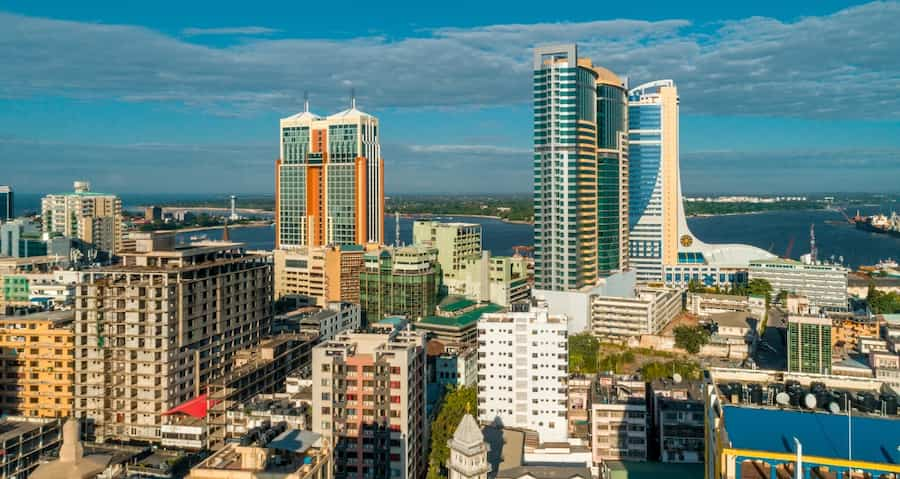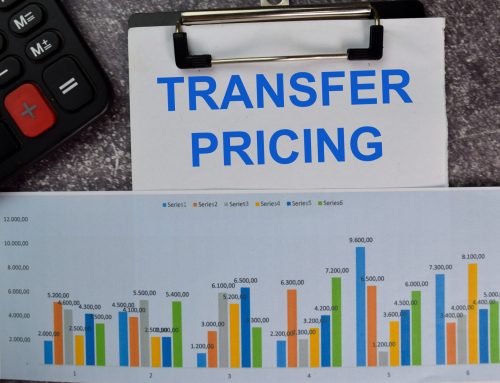1.0 INTRODUCTION
The Government of the United Republic of Tanzania has on 14th February 2025 passed the Investment and Special Economic Zone Act, 2024 to reshuffle the investment regime in Tanzania, thereby establishing a single government agency named the “Tanzania Investment and Special Economic Zone Authority”, that will oversee and supervise investments in Tanzania. The agency stems from the consolidation of the Tanzania Investment Center, the Export Processing Zone, and the Special Economic Zone, which were former government agencies tasked to supervise investments in the country.
This move is made operational by repealing the legal framework that establishes the former investment institutions, that is the Investment Act RE 2022, the Export Processing Zone Act RE 2012, and the Special Economic Zone Act RE 2012.
This reshuffle is motivated by what has been observed from the former investment institution to be carrying overlapping roles and undergoing inefficiencies among state agencies, which results in high operational costs to the government. All these resulted into giving birth to a single Investment Center to oversee the implementation of investment policies and dispute resolution and become a center for registering, managing, and encouraging investment in Tanzania.
2.0 ANALYSIS OF THE PROPOSED CHANGES
2.1 Repeal of the Tanzania Investment Act 2022, the Export Processing Zone Act R: E 2012, and the Special Economic Zone Act R: E 2012.
The Investment and Special Economic Zone Act, 2024 under section 50(1) repeals the legislative legal framework that establishes the Tanzania Investment Center, the Export Processing Zone Authority, and the Special Economic Zone Authority. Meanwhile, all the existing Regulations and Rules that were created under former legal frameworks are adopted and effectively applied as if they have been established by the Investment and Special Economic Zone Act.
The licenses or certificate of incentives issued by the former regime, to investors will proceed to be valid as if they were given under the new legislation. The Act succeeds the former investment regime without affecting the rights or obligations held by the investors. The investors are encouraged to meet the conditions that are imposed on them at the issuance of the certificate of incentives and the derivative rights to maintain their rights, or rather their license or certificate may be in jeopardy of being invalidated and forfeited back to the Investment and Special Economic Zone Authority. This directive comes to ensure compliance by the investors at this time of the transition, and to ensure opportunities given to particular investors through these licenses are accordingly utilized to foster the country’s economy.
2.2 Introducing the Investment and Special Economic Zones.
Section 4 (1) of the Act establishes the Investment and Special Economic Zone that will function as a one-stop investment center in mainland Tanzania to deal with all investment matters, as stipulated through section 12 of the Act. The Investment and Special Economic Zone is positioned to be the center of promoting the state’s investment policies and to be tasked to register and issue investment certificates or licenses to investors on new, or ongoing investments.
The objectives of the Investment and Special Economic Zones are those of the former Tanzania Investment Center or the Export Processing Zone Authority, which is mainly to promote investment in Tanzania. The main variance is that now we have a single investment authority, the “Investment and Special Economic Zones” that does all the work which were earlier divided into the three former regimes. While introducing this law, the new authority is expected to clear up redundancy and promote efficiency in servicing investors here in the country.
2.3 Establishment of the National Investment Development Committee.
Section 7 of the Act establishes the National Investment Development Committee. A committee with the function to issue investment policy Regulations, regulations that foster investment in the country, but also to set plans on different programs to improve the investment climate in the country. This Committee replaces the former National Investment Steering Committee which operated under the Tanzania Investment Act of 2022.
This Committee is constituted by the Prime Minister who serves as the Chairperson, the minister responsible for investment who currently falls under the Minister of State, President’s Office, Planning and Investment, who serves as the Vice Chairperson; also, the Minister responsible for foreign affairs, finance, land, Attorney General, General Commissioner for Tanzania Revenue Authority, Governor of Bank of Tanzania and the chief executive officer of the Investment and Special Economic Zones.
2.4 Establishment of an integrated electronic system.
Section 14 of the Act establishes an integrated electronic system that aims at promoting and facilitating investment in Tanzania. The system allows individuals and companies interested in investing in Tanzania or who are already investors, to register for a certificate of incentives and/or to process for acquisition of an investment license. Under this system, investors will have access to Government Authorities that are a cornerstone to business and non-business entity compliances, on the acquisition of licenses, and permits, such as TRA, Municipal Council, OSHA, NSSF, WCF, etc.
This system adopts the former electronic system which was operated by the TIC, EPZA, and SPZ, but now the system is operated and managed by the Investment and Special Economic Zones. Under this current authority it is expected to facilitate easier processing of relevant regulatory permits and licenses wherever an investor can be, and ensuring investors can avoid the institutional bureaucracy from a quick electronic service portal thus saving time and promoting efficiency in public service.
2.5 Available Investment incentives to investors
Section 19 of the Act introduces an incentive package offered to registered investors. Investors who have a certificate of incentive become entitled to a diverse incentive package that is granted by the government through different legal frameworks such as the Tax Act, The Custom Duty Act, and the Value Added Tax Act. They range from fiscal incentives to non-fiscal incentives, touching on the import and export of goods and services. A licensed investor in a special economic area is offered an incentive with the following package;
- Exemption from customs duty, VAT, and other taxes imposed on raw material or capital goods
- Exemption of corporate tax for an initial period of 10 years
- Exemption of withholding tax on Rent, dividends, and interests for an initial period of 10 years
- Exemption of withholding tax on interests on loans acquired from foreign countries.
- Exemption of taxes, charges, and levies charged by the Local Government Authority on goods manufactured in the special economic zone for 10 years.
- Exemption of Custom Duty, Value Added Tax, and other taxes to be paid on importation of one motor vehicle for administration services, motor vehicle to carry patients, fire trucks, and two motor vehicle buses for transportation of employees within the special economic zone.
- Business Visa for employees during entry for two months.
- Exemption of Added Value Tax on services such as Water, Electricity, Gas and Telephone
- Exemption of Added Value Tax on construction tools and services.
2.6 Establishment of the Land Bank
Section 23 of the Act establishes a Land Bank as a database to monitor and manage all lands that are designated to be areas of Investment. The role of the Land Bank is to obtain or pinpoint potential areas suitable for different economic activities to ease the availability and flexibility for investors to acquire land for intended projects. Obtaining land by Investors has been a big hustle as most are foreigners who are new to the Tanzanian environment, hence this Land Bank will ensure investors receive proper guidance to acquire land for investment.
Before the introduction of this law, the Land Bank was not there under the investment regime. It’s establishment comes with various tactics that are a turnup to prospective investors, as the Land Bank will have in its list three categories of land;
- the first category will be all designated lands,
- land which is acquired for investment purposes,
- land that is privately owned.
But also, the Land Bank will have the option to grant land either by Derivative right or periodic lease. These are projected and effective ways to effect land acquisition with the good name of fostering investment in the country.
2.7 Establishment of the Special Economic Zone
Section 25 of the Act establishes the Special Economic Zone; designated areas special for promoting and attracting investment in strategic or priority economic activity to encourage competition, production for foreign markets, and increasing employment opportunities.
The Act identifies the Special Economic Zone to comprise areas such as; the Export Processing Zone, the modern industrial park, free trade areas, free ports, tourism parks, agriculture areas, science and technology, and other areas that the Minister responsible for lands may declare.
Areas that are declared in a Special Economic Zone, become under the control and supervision of the Customs Authority according to the laws governing custom matters, which the Commissioner General of Tanzania Revenue Authority has been conferred with power to issue guidelines on tax collection.
In matters concerning export of goods produced within the Special Economic Zone. An investor must acquire relevant permits issued by the Customs Authority, pay required customs taxes, and abide by the export capacity which requires not exceed 20 percent of yearly production.
2.8 License issued by the Special Economic Zone.
Section 29 of the Act introduces three types of licenses to be issued by the Special Economic Zone. Which are, a license for the production of goods for foreign markets or domestic markets; a license for developing the Special Economic Zone, and a license for managing the Special Economic Zone.
2.9 Investors’ right to repatriate income.
Section 33 of the Act grants an investor the right to repatriate income from investment made here in Tanzania to a financial institution of his/her choice in a foreign country without facing restrictions from the government. The income includes profits and dividends derived from the investment, payment of loans acquired from foreign financial institutions, and salary income paid to foreign citizens.
2.10 Protection against Nationalization of private property.
Section 34 of the Act prohibits the nationalization of investors’ property or investments, by the government. The investors are protected from government nationalization waves as most African Countries underwent in the next few years after Independence. The Act tends to invest confidence in foreign investors to make substantial investments here in Tanzania without fearing the occurrence of nationalization policies. The Act comes to honor existing states’ policies and international treaties to encourage offshore investment and ownership of property.
The Act clears out the air, that investors will receive prompt compensation for the portion of their investment in any nationalization scheme. Investors are also handed over channels to seek court redress, domestic and/or international tribunals when there is a move to nationalize what they have invested in the country.
2.11 Protection of individual property against deprivation through nationalization.
Section 37 of the Act legitimatizes and affords opportunities to investors to secure a loan from a recognized bank(s) in Tanzania. This Act comes to introduce an eco-friendly environment for investors especially foreign investors who intend to make substantial investments but have a shortage of capital. Investors’ access to loans is going to be a tool to attract extensive and huge investment given that investors can expand their capital. The Act bestows the financial institutions to have the right while issuing such loans to investors, to have in position their officers to follow up, to ensure the manner of utilization is as requested by such investors.
2.12 Dispute resolution mechanism between investors and government institutions
Section 38 of the Act establishes mechanisms to resolve complaints and disputes that emerge between investors and the government institution.
Few facts on submitting complaints
A complaint is submitted and determined by the Investment and Special Economic Zone. The Authority will determine the complaint within 30 days. While determining, the authority is required to involve all stakeholders in solving the complaints to reach a fair and righteous decision. The Act upholds the complaint procedures to be confidential, to protect the interest and internal matters of investors. After the decision is given a party who is still aggrieved with the decision of the Investment and Special Economic Zone is given room to appeal to the minister who is responsible with matters of investment.
Handling of disputes
The Act requires, that all disputes at first are to be tabled and negotiated by parties through amicable settlement. When negotiation fails parties have the option to refer the dispute to arbitration or to court. When the investor and the government institution have an agreement to refer their dispute to arbitration then either party will be bound to seek arbitration proceedings first before attempting to invite the court. This move is in line with the party’s autonomy to choose an independent organ (other than courts of law which are an integral part of the state) that will fairly deal with the party’s dispute without the authority that is expected to give out a decision from being pressured by other arms of the government.
3.0 CONCLUSION
The Act brings a desired institutional change to deal with the shortfalls that featured in the former investment institutions, as it has currently done, by consolidating TIC, EPZA, and the SPZ to form a single investment institution that combines similar roles held by these former investment institutions, now to be fulfilled by the Investment and Special Economic Zone. These reshuffles will boost administrative efficiency, and add effective customer service to investors, meanwhile it reduces the operational costs to the government.
The Act also adopts the current legal framework, as such; the available incentives, the available rights and obligations afforded to investors, and the integrated electronic system that serves investors through an online window where applications for certificates of incentives and licenses from regulatory bodies are obtained. The Act is a safe flag as it embraces a mechanism that although it sets a new regime, the rights of the ongoing investors are still preserved.
Disclaimer:
This publication has been prepared for information purposes only, and it does not constitute professional advice. You should not act upon the information contained in this publication without obtaining specific professional advice. No representation or warranty is given as to the accuracy or completeness of the information contained in this publication, and, to the extent permitted by law, Cymbell Attorneys, its partners, employees and agents do not accept or assume any liability, responsibility or duty of care for any consequences of you or anyone else acting, or refraining to act, in reliance on the information contained in this publication or for any decision based on it.
Contact Information
CYMBELL ATTORNEYS
P.O BOX 11481
Office No. 302-2, 3rd Floor, Plot 89, Block 45B,
Victoria Noble Centre, Bagamoyo Road,
Dar es Salaam- Tanzania
Cell: +255 713 411 721
Email: law@cymbellattorneys.com
Website: https://tz.cmadvocates.com/






